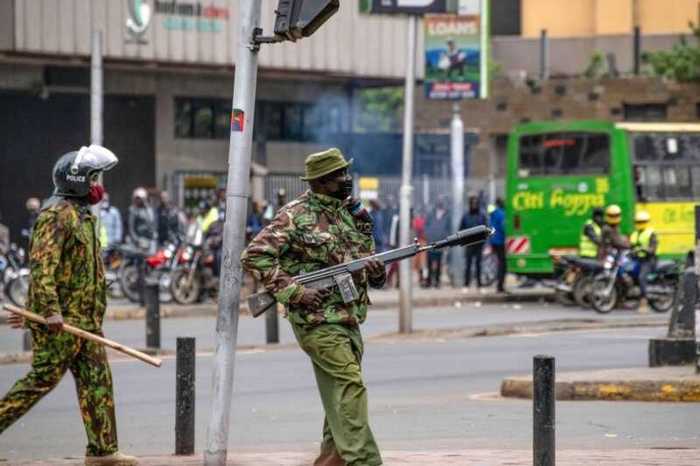Kenyan Activist Albert Ojwang Dies in Police Custody Amid False Defamation Charges

First, police said Albert Ojwang had died after striking his head against the wall of his jail cell. Then, they claimed he had been arrested for spreading defamatory content on social media. Neither account, it now appears, was true.
Ojwang, a 31-year-old Kenyan activist and blogger, died in custody after suffering a head injury and neck compression, according to an autopsy. And the defamatory post he was accused of publishing? OCCRP member center Africa Uncensored revealed he never wrote it.
The revelation findings further complicates the case now roiling Kenya’s police and political establishment.
Using open-source digital forensics, the Africa Uncensored team found no trace of the allegedly criminal post on Ojwang’s now-deleted X account—the very post authorities cited to justify his arrest. While it’s possible he deleted the content himself, everything reporters observed following his arrest and subsequent death suggests otherwise: Ojwang likely had no advance warning of his impending detention and, therefore, no reason to erase the post.
Instead, their review shows that on the day the so-called defamatory campaign appeared online — under the hashtag #MafiaPolice — Ojwang’s account was engaged in unrelated content.
The activist was arrested on June 6 in western Kenya and transported more than 350 kilometers to Nairobi, for allegedly violating the country’s Computer Misuse and Cybercrimes Act because of a “false publication.” According to Inspector General of Police Douglas Kanja, Ojwang had posted “similar defamatory content” tied to the campaign.
“"However, there is no evidence of Ojwang’s involvement, or any posts from his account with the hashtag, further raising questions regarding the basis of his arrest," Africa Uncensored reported.
A few hours after his arrest, Ojwang was discovered unconscious in his cell. Police first alleged he had injured himself. He was taken to a hospital where he was pronounced dead upon arrival.
An autopsy later revealed he had suffered fatal injuries consistent with physical assault. Appearing before the Senate, Kanja retracted the earlier police account. “I tender my apology on behalf of the National Police Service for that information,” he said.
Kanja added that the arrest stemmed from a defamation complaint filed by Deputy Inspector General of the Kenya Police Service Eliud Langat. The official has since faced mounting calls for his resignation. After days of protests ignited by Ojwang’s death, Langat stepped aside from his office pending completion of the investigation. In his statement, he made no mention of being the complainant.
Legal experts have questioned not only the police conduct but also the legal justification for Ojwang’s arrest. Dr. Mugambi Laibuta, an advocate of the High Court of Kenya, said the Computer Misuse and Cybercrimes Act had effectively revived a charge previously deemed unconstitutional.
“In essence, [the act] brought criminal defamation through the back door,” Laibuta told OCCRP.
President William Ruto has condemned the killing “at the hands of the police,” and denounced “the actions and omissions, including any negligence or outright criminality,” that contributed to it.
Ojwang was buried on July 4. Thousands attended his funeral. A formal investigation into his death remains ongoing.
Виктория ЯновскаяРаспечатать